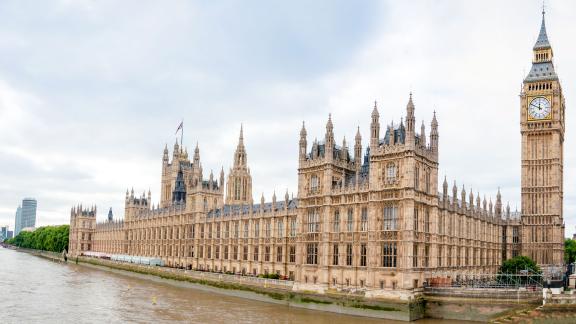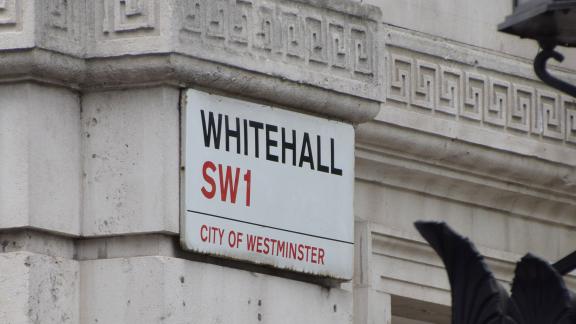Health and care bill: Lords Third Reading
Key points
- The NHS Confederation largely supports the Health and Care Bill. There is clear consensus across our membership that the future of health and care must be based on collaboration and partnership working at a local level, which this Bill facilitates.
- The Bill is, in most part, based on recommendations from NHS England and NHS Improvement (NHSEI), as well as local health and care leaders, to remove legislative barriers to the local integration of care services. In practice, this integration is already underway across England. In many ways, the legislation is therefore catching up with what is happening on the ground.
- Our members – leaders across the NHS – agree that the Bill should be as permissive as possible. It should act as an enabler of integration and local flexibility, empowering local leaders to make decisions in the best interests of their populations rather than an overly prescriptive set of centralised rules.
- We have a number of remaining concerns in relation to the Bill as we look to Third Reading and ping pong - new powers for Secretary of State over local service reconfiguration, the inadequacy of current workforce measures in the Bill and growing concern about the timing of the Bill and the need for Royal Assent by end of April to meet the July 1 implementation date.

Timing of the Bill
The implementation date for statutory integrated care systems (ICSs), already delayed from 1 April, is currently set for 1 July.
Any further delay to the implementation date would be disruptive and unwelcome. The NHS Confederation has already highlighted the significant problems caused to ICS leaders by the initial delay to July. The implications for accountability, finances, HR and a range of other issues would be even more severe with another delay.
We urge peers to press the government to compromise on the issues of most concern to NHS leaders (including those above) and let them get on with delivering integrated care.
Local reconfigurations (Clause 40)
Our members’ most pressing concern regarding the Health and Care Bill is the significant and largely unchecked new powers for the Secretary of State to intervene at any stage of a local service reconfiguration, with no minimum set of information requirements on which to base such a decision.
We believe this change risks undermining progress towards integration in the following ways:
- The ability of hospitals, GP surgeries, clinics and other local NHS organisations to make important and sometimes difficult decisions about the services they provide is significantly reduced. This takes away local expert accountability, which is a key aspiration of the Bill.
- Without clinical advice, local input, or public transparency over local service reconfiguration decisions, the quality and safety of patient care may be at risk.
- The current wording of the Bill would allow the Secretary of State to intervene, with no limitations, in a decision on local services for political reasons
- Empowering local health and care leaders to make service decisions around the needs of their local communities is critical to meeting rising demands. Allowing central intervention to override local decisions undermines this principle
80% of our members disagreed with the statement ‘the new powers for the Secretary of State in the Health and Care Bill will benefit patients’ when we surveyed them last year.
At Report Stage, the Clause was removed from the Bill, and we welcomed this.
Our ask
We encourage peers to press the Government to not seek to bring Clause 40 back into the Bill, or at the very least, bring forward compromise amendments that would put safeguards on these powers.
Workforce (Clause 35)
Our members are clear that workforce planning and funding is a key part of ensuring quality and safe care for patients both now and in the future. The duty on the Secretary of State in the Bill as it stands does not go far enough in ensuring we know we are training enough people to deliver health and care services that meet the needs of the population in future.
In a survey of our members undertaken shortly before Christmas, 9 in 10 said that a lack of staffing in the NHS is putting patient safety and care at risk.
We are one of almost 100 health and care organisations, led by the Royal College of Physicians, that have been calling for the bill to be amended to mandate independent assessments of current and future workforce numbers to be published regularly.
We welcomed this amendment being passed Report Stage.
Our ask
We encourage peers to lobby Government and colleagues in the Commons to support the amendment remaining in the bill as it approaches Royal Assent.
Mental Health (Clause 20 & 77)
The NHS Confederation, including our Mental Health Network, welcomed the Government’s amendment that puts a requirement for the Secretary of State to confirm annually whether they expect mental health funding to increase, and for ICSs and NHS England to report annually on their mental health spend. We also supported the amendment that confirms that the definition of “health” explicitly includes mental health.
Our Mental Health Network, along with the Mental Health Policy Group, also support Lord Bradley’s amendment to mandate a place on the ICB for a mental health specialist.
Our ask
Our Mental Health Network urges peers to press Government and colleagues in the Commons to support keeping the amendment cited above in the bill.



